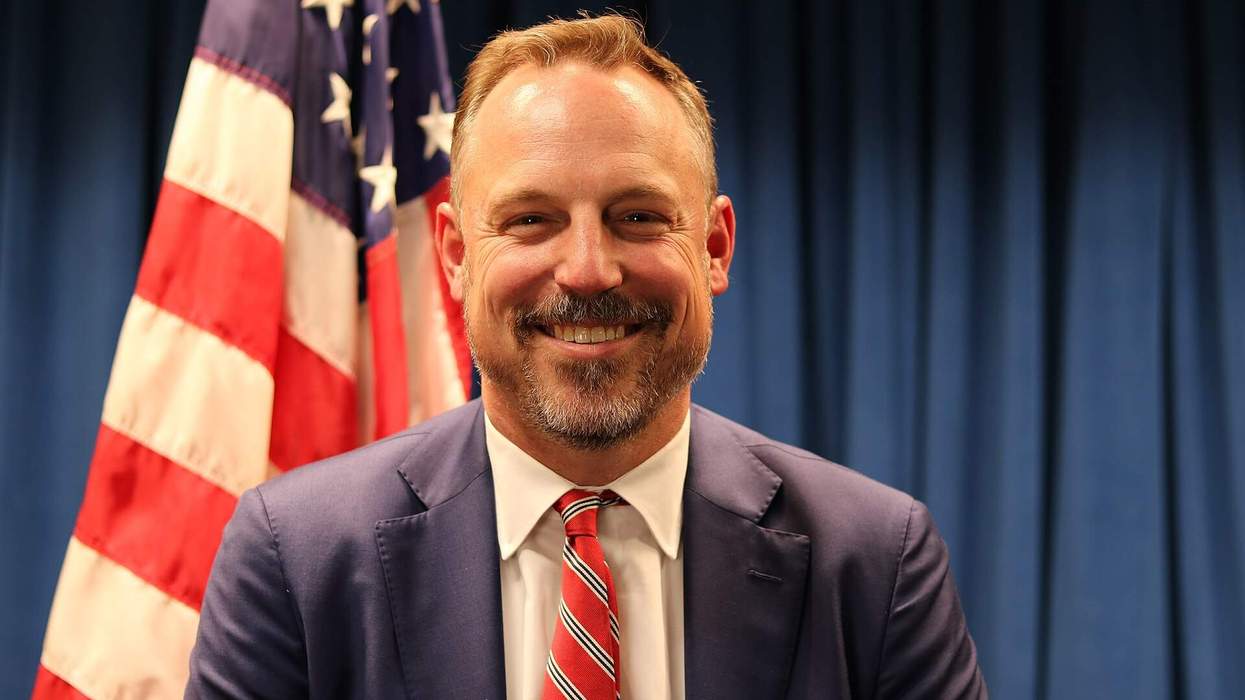Prisoner rape is a national human rights crisis, but it's a crisis we can end. Every year, at least 216,600 people -- more than a quarter of the population of San Francisco, my hometown -- are sexually abused in U.S. detention facilities. That's the number of people who are abused, not the number of incidents; each victim is assaulted on average three to five times a year.
While anyone can become a victim of rape in detention, some are at higher risk than others. The most vulnerable are members of our LGBT community. According to government data, LGBT inmates are nearly nine times more likely than non-LGBT prisoners to be assaulted by another inmate. In California, a shocking 67% of LGBT inmates report having been sexually abused while incarcerated. LGBT youth, too, face staggering levels of sexual abuse in detention, mostly at the hands of corrections staff.
Now the good news. This week, the Department of Justice, after a delay of nearly two years, finally released binding national standards to eliminate this abuse. These groundbreaking regulations will protect LGBT inmates, and could -- if fully implemented by corrections facilities across the country -- lead to the end of sexual abuse in detention in our lifetimes.
I know too well the toll that sexual abuse behind bars takes on survivors. Serving on the Board of Just Detention International, the only organization in the U.S. dedicated to ending prisoner rape, I have worked for years to protect the safety and dignity of prisoners, and of LGBT inmates in particular. Every day, JDI receives letters from LGBT survivors of sexual abuse in jails, prisons, police lock-ups, and immigration detention centers. Each of these letters is a reminder of the horror so many LGBT inmates face, and of the need to keep fighting to end this form of abuse. After all, when the government removes someone's freedom, it takes on an absolute responsibility to protect that person's safety.
One prisoner who was not protected was Bryson Martel. While serving time in Arkansas for check fraud, Bryson was raped repeatedly. "Because I was raped, I got labeled as a 'f****t,'" he said. "Everywhere I walked, everyone looked at me like I was a target. It opened the door for a lot of other predators. Even the administrators thought it was OK for a 'f****t' to be raped. They said, 'Oh, you must like it.'"
Bryson contracted HIV as a result of the attacks. In 2010, he died of AIDS-related complications.
JDI was a leader in developing and advocating for the Prison Rape Elimination Act of 2003, a landmark bill that mandates the new national standards. Finally, nine years later, uniform, enforceable standards, the first of their kind anywhere in the world, have the potential to transform the way individual facilities and detention systems protect the people in their custody. Several provisions could directly improve the safety of LGBT, intersex, and gender-nonconforming detainees.
For instance, in order to be compliant with the standards, facilities must do the following:
* Staff should be trained on effective and professional communication with our communities.
* Housing assignments should take into consideration our individual vulnerabilities but do not, in most circumstances, place us in inferior wings or pods.
* An analysis is required of whether an abuser was motivated by bias against us, if abuse does occur.
* Transgender detainees cannot be searched solely to determine their genitalia, and determinations must be made on a case-by-case basis about whether we should be held in a men's or women's facility and cannot be based solely on genital status.
The publication of the standards marks a turning point in the decades-long struggle to end sexual abuse in U.S. detention. Now, to reach this goal, the standards must be fully and meaningfully implemented. We must put pressure on the federal government to ensure that the standards result in change on the ground, inside every single corrections facility.
Locally, it is vital that advocates support the efforts of prison, jails, and lock-ups in their areas to become PREA compliant. And, as ever, advocates and policymakers alike must take their lead from survivors, who fought so bravely for PREA's passage.
Sexual abuse is never an appropriate punishment, no matter what the crime. This type of abuse is also not inevitable. Over the last decade, a growing number of people -- including many corrections officials -- have begun to agree with what advocates have been saying all along: We can stop prisoner rape. Now, thanks to the standards, we have the tools to do just that.
CECILIA CHUNG is a San Francisco Health Commissioner and Board member of Just Detention International.















Charlie Kirk DID say stoning gay people was the 'perfect law' — and these other heinous quotes
These are some of his worst comments about LGBTQ+ people made by Charlie Kirk.